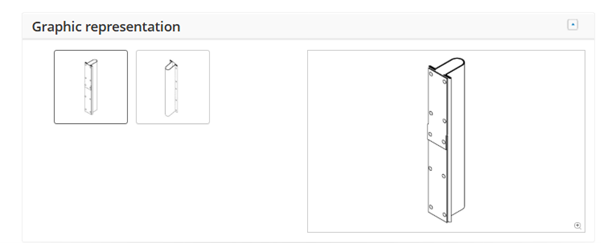
The Court of Appeal recently handed down its decision in Praesidiad Holding BVBA & Anor v Zaun Ltd [2025] EWCA Civ 591. This was an appeal by the defendant (Zaun) against an order striking out a counterclaim for invalidity of a registered Community design (RCD) and its equivalent UK re-registered design (UKRRD) created automatically post-Brexit.
The case centred on whether Zaun could re-litigate in respect of the validity of the RCD and the UKRRD, where the EUIPO had already upheld the RCD’s validity. The High Court had previously held that Zaun was disallowed from challenging the validity due to previous rulings against it by the EUIPO and the General Court.
The Court of Appeal upheld the High Court’s decision, confirming that Article 86(5) of the Community Designs Regulation (6/2002/EC) (CD Regulation), which prevents the re-litigation of validity issues already decided, applied to the case by virtue of the UK-EU Withdrawal Agreement and that Zaun was barred by the principles of res judicata and abuse of process.
Community designs post-Brexit
RCDs are an intellectual property right granted by the EUIPO which protect the outward appearance of a product (or part of it) provided the design is new and has individual character. RCDs can be enforced in EU member states.
Following the UK’s withdrawal from the EU, RCDs ceased to have effect in the UK. To ensure continuity, the UKIPO created equivalent UK rights called UK re-registered designs, which automatically replaced RCDs which had been registered before 1 January 2021. UKRRDs are independent from RCDs and are managed and enforced separately under UK law.
Background
The first instance High Court claim had been brought by (1) Praesidiad Holding BVBA (Betafence) and (2) Guardiar Europe BVBA, (together the “Guardiar Group”).
Betafence is the owner of RCD 000127204-00001, which protects the design of its “Bekasecure” fence posts and which appears as follows:

Zaun was alleged to have infringed the RCD by selling a competing high-security fence post.
The case went through various procedural phases before reaching the Court of Appeal. A timeline of events is as follows:
|
Date
|
Event
|
|
8 March 2018
|
Betafence sends letter to Zaun alleging infringement of the Bekasecure RCD
|
|
27 March 2018
|
Zaun applies to EUIPO for a declaration of invalidity of the Bekasecure RCD
|
|
24 July 2018
|
The Guardiar Group issues and serves its High Court claim for RCD infringement on Zaun
|
|
8 August 2018
|
Zaun applies for a stay of the High Court proceedings pending the EUIPO’s validity decision
|
|
23 October 2018
|
Stay of proceedings is granted (by consent order)
|
|
19 July 2019
|
The EUIPO Invalidity Division rejects Zaun’s application to invalidate the Bekasecure RCD
|
|
31 December 2020
|
End of the Brexit transition period, referred to as IP Completion Day
|
|
15 February 2021
|
Zaun appeals against the EUIPO Invalidity Division decision. The EUIPO Third Board of Appeal allows Zaun’s appeal and declares the Bekasecure RCD invalid
|
|
19 October 2022
|
The Guardiar Group appeals against the EUIPO Third Board of Appeal decision. The General Court annuls the decision and rejects Zaun’s application to invalidate the Bekasecure RCD
|
|
18 April 2023
|
CJEU refuses Zaun’s request to appeal the General Court’s decision
|
|
12 June 2023
|
EUIPO Third Board of Appeal issues a second decision, dismissing Zaun’s application for a declaration of invalidity. The stay of the High Court proceedings ends
|
|
7 July 2023
|
The Guardiar Group serves its Amended Particulars of Claim, which includes a claim of infringement of its UKRRD equivalent of the Bekasecure RCD
|
|
7 August 2023
|
Zaun serves its Defence and Counterclaim, which challenges validity of the Bekasecure RCD and the UKRRD equivalent
|
|
19 September 2023
|
The Guardiar Group applies to strike out Zaun’s counterclaim
|
|
7 May 2024
|
High Court grants Guardiar Group’s application to strike out Zaun’s counterclaim
|
|
1 May 2025
|
CoA hears Zaun’s appeal of the High Court decision to strike out Zaun’s counterclaim
|
Stay up to date by subscribing to the latest Intellectual Property insights from the experts at Fieldfisher.
The grounds for appeal
Zaun appealed to the Court of Appeal on 3 grounds:
- Ground 1 – the judge was wrong to hold that Article 86(5) of the CD Regulation, which prevents national courts from hearing counterclaims for a declaration of invalidity, where the claim has already been determined by the EUIPO, was a provision regarding jurisdiction within Article 67(1) of the UK-EU Withdrawal Agreement (that clause ensured that certain EU rules on jurisdiction, recognition and enforcement of judgments continued to apply to proceedings pending on IP Completion Day);
- Ground 2 – the judge was wrong to hold that Article 86(5) of the CD Regulation continued to apply to these proceedings post-Brexit; and
- Ground 3 – the judge was wrong to hold that Zaun was precluded from bringing its counterclaim by the common law principles of res judicata or abuse of process because the UKRRD was a distinct national right that had never been considered by the EUIPO. Zaun accepted that the effect of paragraph 9A of Schedule 1A to the Registered Designs Act 1949 (the 1949 Act) (which deals with the effect of RCD invalidation proceedings which are pending on IP Completion Day) was that, if the RCD had been declared invalid as a result of the EUIPO proceedings, then the UKRRD would also have been declared invalid, but argued that that was irrelevant to the position at common law.
The Court of Appeal decision
Article 86(5) of the CD Regulation
The Court of Appeal found that “the provisions regarding jurisdiction” of the CD Regulation were preserved under the UK’s retained EU law framework after IP Completion Day by virtue of Article 67(1) of the UK-EU Withdrawal Agreement.
Zaun tried to argue that Article 86(5) should not be preserved under the UK’s retained EU law framework, on the basis that this provision concerned procedure or substantive law, as opposed to jurisdiction. However, the Court of Appeal rejected this interpretation and held that Article 86(5) was a jurisdictional provision – it governed the authority of national courts. The provision was not located in any of the Titles of the CD Regulation dealing with substantive law, but in Title IX dealing with “jurisdiction and procedure”
The Court of Appeal also noted that its analysis was supported by a line of authorities related to the infringement and validity of EU trade marks which were pending in the UK on 31 December 2020. In particular, Lord Justice Arnold cited the recent case of Sky plc v SkyKick UK Ltd [2024] UKSC 36 (and see here our blog on the case – Supreme Court rules in Sky v SkyKick), in which an issue arose over whether EU trade mark courts retained jurisdiction to deal with the infringement and validity of EU trade marks that were pending in the UK as of 31 December 2020. The Supreme Court confirmed that they did.
Zaun accepted that ground 2 stood or fell with ground 1 so it was discussed no further.
Res Judicata or abuse of process
Article 86(5) applies specifically to counterclaims for declarations of invalidity of RCDs. The Court of Appeal clarified that this provision did not extend to UKRRDs, which are distinct national rights, the validity of which had never been assessed by the EUIPO. This counterclaim had not been brought pursuant to the jurisdictional and other provisions of the CD Regulation, but pursuant to the domestic jurisdiction of the High Court and the 1994 Act. The Court of Appeal therefore found that the High Court judge was wrong to find that Zaun’s counterclaim for a declaration of invalidity of the UKRRD was barred by Article 86(5) of the CD Regulation.
However, the Court of Appeal held that the High Court judge was right to find that the counterclaim was barred by res judicata and abuse of process. The Court of Appeal reasoned that although UKRRDs are separate rights, they are substantively identical to RCDs and to quote Counsel for Zaun, they are a ‘clone of the RCD’. Further, the judgment refers to the UKRRD having a ‘parasitic nature’ and also highlights paragraph 9(4) of Schedule 1A to the 1949 Act that states the UKRRD ‘derives from’ the RCD.
Since the validity of the parent RCD had already been determined by the EUIPO and upheld by the General Court, Zaun was precluded from re-challenging the same design as a UKRRD in UK proceedings.
Comment
The ruling confirms the following:
- The principle of res judicata applies to UKRRDs. This means that once the validity of the RCD has been determined by the EUIPO and European Courts, the same party cannot challenge the validity of the UKRRD on the same or similar grounds in the UK Courts;
- Article 86(5) of the CD Regulation, which prevents national courts from hearing counterclaims for a declaration of invalidity, where the claim has already been determined by the EUIPO, is a jurisdictional provision. As such, it is preserved in UK law post- Brexit by virtue of the UK-EU Withdrawal Act; and
- Decisions of the EUIPO on the validity of RCDs remain binding in UK proceedings that were pending on IP Completion Day.
The case underscores the importance of timing and forum selection in intellectual property disputes involving cross-jurisdictional rights, particularly where EU and UK legal systems intersect.
Litigants must carefully consider when and where to challenge design rights, as prior decisions—especially those made before Brexit—can limit the ability to re-argue issues in a different jurisdiction.




